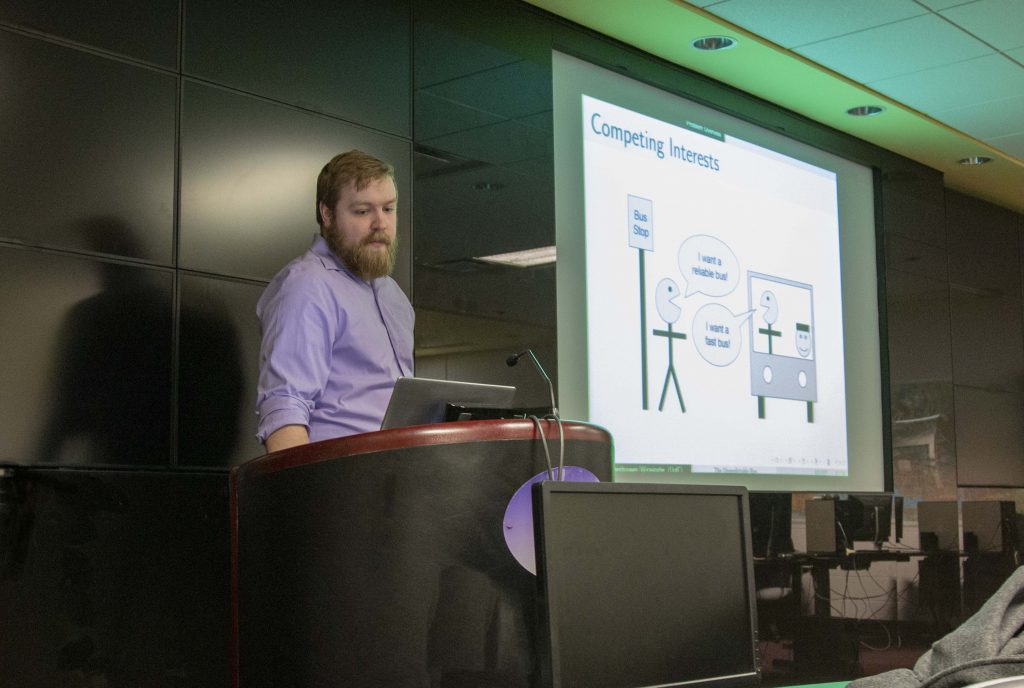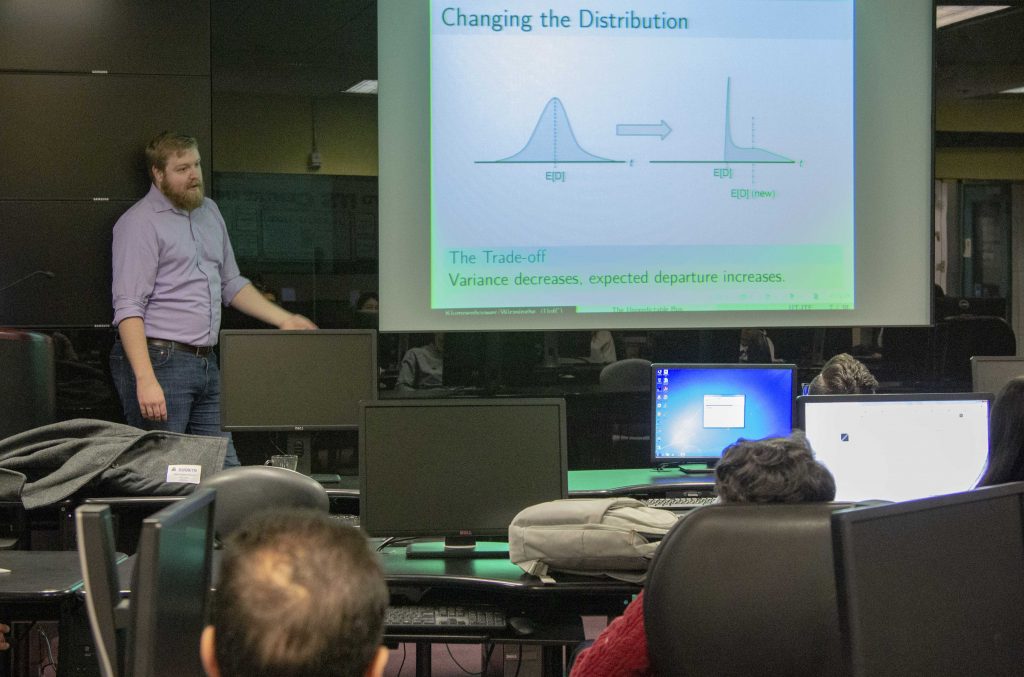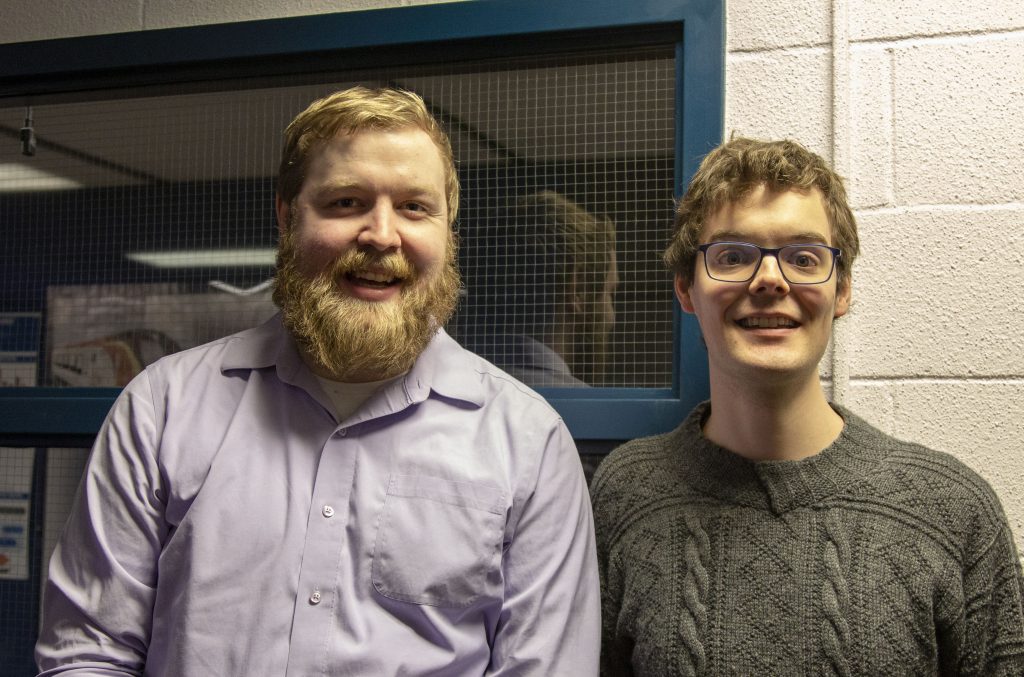
Dr. Willem Klumpenhouwer presented “The Markovian Bus” on March 8 as part of the UT-ITE Seminar Series.
Transit, especially buses that run in mixed traffic, are subject to randomness from a variety of factors.
In an attempt to provide reliable scheduled service, operators use holding control: a strategy of selecting individual stops where early buses are held, and extra time is scheduled to allow late buses to catch up. This strategy creates a trade off between reliability and speed.

What, then, is the optimal number and location of these holding points to balance the need for reliable service and speed?
Dr. Klumpenhouwer’s talk employed the use of Markov Chains to model bus behavior and investigate this problem.
This seminar was presented by the University of Toronto Institute of Transportation Engineers (ITE) Student Chapter. A videorecording of the presentation may be viewed here.
Short biography
Willem Klumpenhouwer is a transportation planner and transit advocate currently working in the Systems Analysis and Forecasting Office at the Ministry of Transportation Ontario. He holds a PhD in Transportation Engineering from the University of Calgary and a Bachelor of Science (Honours) in Theoretical Physics from the University of Guelph. His focus is on fostering logic and data driven conversations about transportation and transportation planning.

